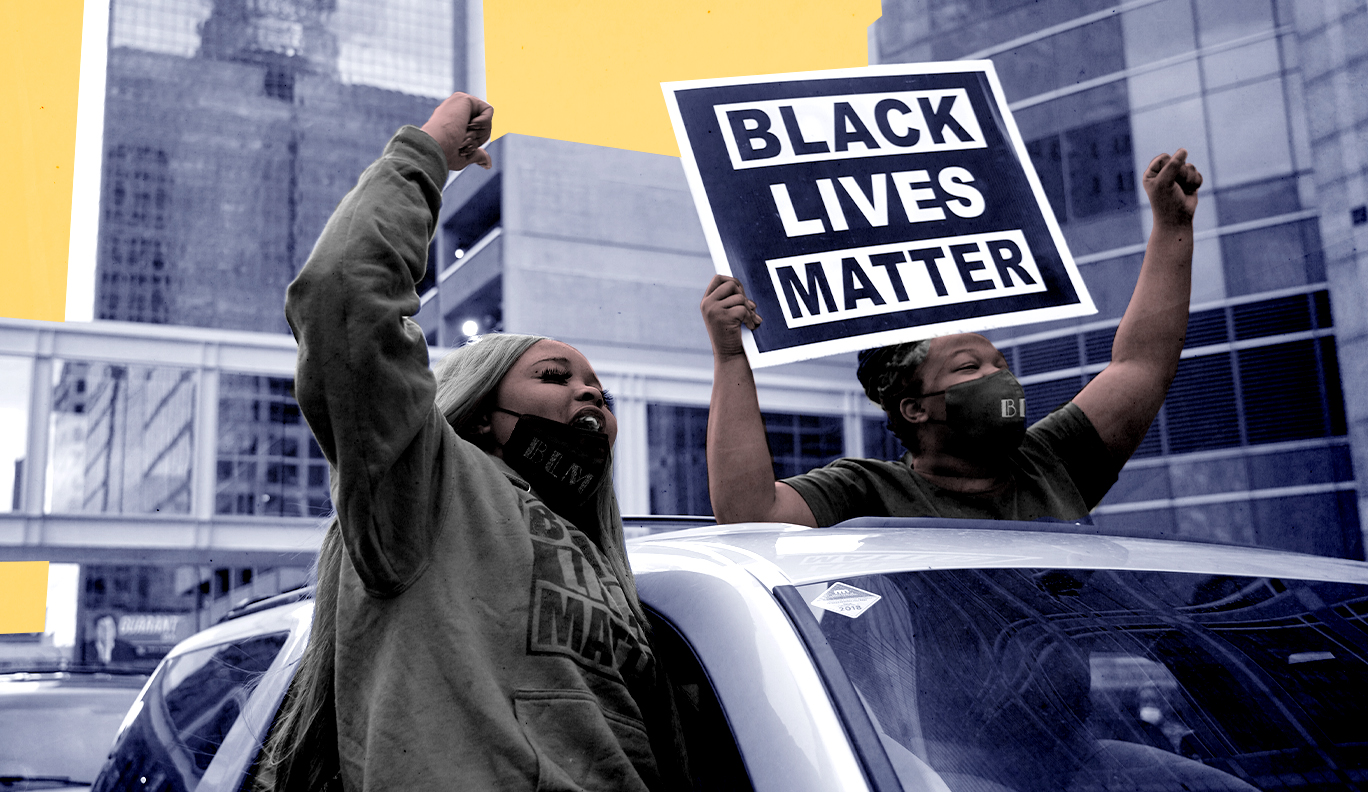The Chauvin verdict should be celebrated
The jurors, like the witnesses in the trial, told the truth and shamed the devil


A free daily email with the biggest news stories of the day – and the best features from TheWeek.com
You are now subscribed
Your newsletter sign-up was successful
Like millions of observers, I was not surprised by the verdict in the trial of Derek Chauvin, the now-former police officer who was convicted of the murder of George Floyd on Tuesday by a jury in Minneapolis.
I say "not surprised" for two reasons. The first is simply that there was no other reasonable interpretation of the plain evidence that was presented to the jurors, especially the infamous video showing an all-but-gleeful Chauvin putting his knee on the neck of a man who had been suspected of trying to pass off a phony $20 bill at a nearby store. In an unambiguous sense, he was guilty of the crimes of which he was accused according to their straightforward statutory definition.
The second reason is that, without casting aspersions of the integrity of the jury's members, this verdict seemed to me inevitable in a broader sense. Given what Floyd's death has come to represent, it was difficult to imagine this case being decided any other way.
The Week
Escape your echo chamber. Get the facts behind the news, plus analysis from multiple perspectives.

Sign up for The Week's Free Newsletters
From our morning news briefing to a weekly Good News Newsletter, get the best of The Week delivered directly to your inbox.
From our morning news briefing to a weekly Good News Newsletter, get the best of The Week delivered directly to your inbox.
This was not because public opinion was firmly on one side. Even those of us who were convinced of Chauvin's guilt accepted some time ago that roughly half the American people were on the other side. But the lines were not always predictable. It was foolish of Chauvin's would-be defenders to attempt to make this a referendum on the conduct of police officers simpliciter. During the trial, the local department in Minneapolis did everything possible to explain that its former employee's conduct, whatever its ultimate legal implications, was not within the ordinary run of police business; police unions across the country have followed suit. Even the on-air talent during the Fox News broadcast of the verdict I was watching seemed broadly in agreement that justice had been done.
This is what made the arguments of those who have gone out of their way to defend Chauvin so ghoulish. If you seriously believe that a police officer attempting to apprehend a man accused of using counterfeit money is justified in putting his knee upon the latter's neck for nine minutes and 29 seconds, there is no limit to what powers you think law enforcement has. And if monetary fraud is such a serious crime, where, I wonder, was the knee on Bernie Madoff's neck?
There is simply no reason for anything like this to happen, ever, to any resident of any city or state. It has always struck me as grimly amusing that unlike Floyd, Eric Garner, and goodness knows how many other victims before them, the perpetrators of gun massacres are frequently taken unharmed into police custody.
But on the other side of the argument, the shameful conduct of some persons could have a greater effect than that of their opponents. If Chauvin's attorneys succeed in having the verdict overturned, something I fear possible, Maxine Waters and others who overstepped the bounds of what elected officials should say about any ongoing criminal trial will deserve a great deal of the blame.
A free daily email with the biggest news stories of the day – and the best features from TheWeek.com
But for now, the verdict should be celebrated for what it is: a model of justice done. The jurors, like the witnesses in this trial, told the truth and shamed the devil. Their verdict not only fit the evidence; it spoke to the inchoate feelings of millions of Americans on the most vexed question in our public life, that of race.
Yet there is also a sense in which none of this matters. In a better world none of these considerations would enter into this case because we would no longer assume that racial animus was a likely motive in any such crime. It would be a simple question with a simple answer: Did the accused beyond a reasonable doubt commit the crimes with which he is charged?
Precisely because it gives this country and her African-American citizens a glimpse, however fleeting, of such a world, the verdict is good news that should be welcomed without hesitation.
Matthew Walther is a national correspondent at The Week. His work has also appeared in First Things, The Spectator of London, The Catholic Herald, National Review, and other publications. He is currently writing a biography of the Rev. Montague Summers. He is also a Robert Novak Journalism Fellow.
-
 The Week Unwrapped: Do the Freemasons have too much sway in the police force?
The Week Unwrapped: Do the Freemasons have too much sway in the police force?Podcast Plus, what does the growing popularity of prediction markets mean for the future? And why are UK film and TV workers struggling?
-
 Properties of the week: pretty thatched cottages
Properties of the week: pretty thatched cottagesThe Week Recommends Featuring homes in West Sussex, Dorset and Suffolk
-
 The week’s best photos
The week’s best photosIn Pictures An explosive meal, a carnival of joy, and more
